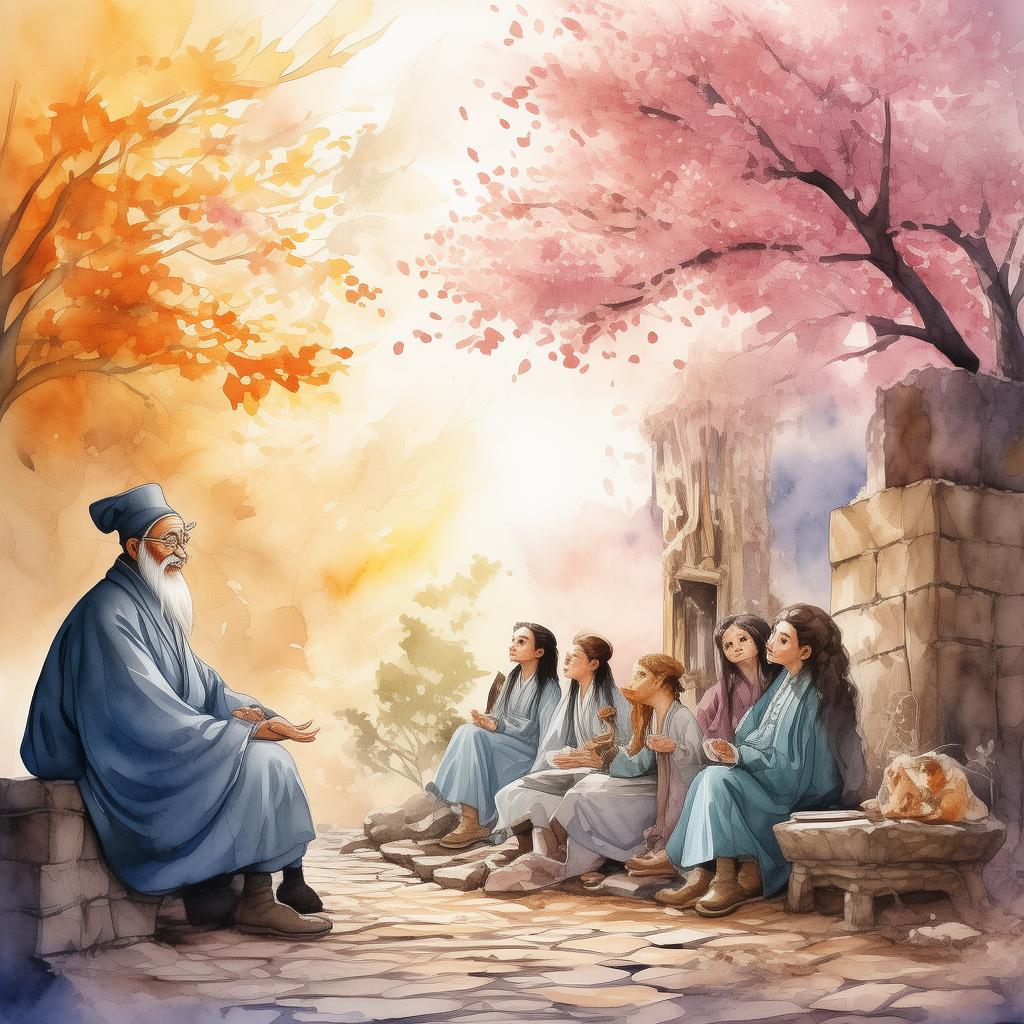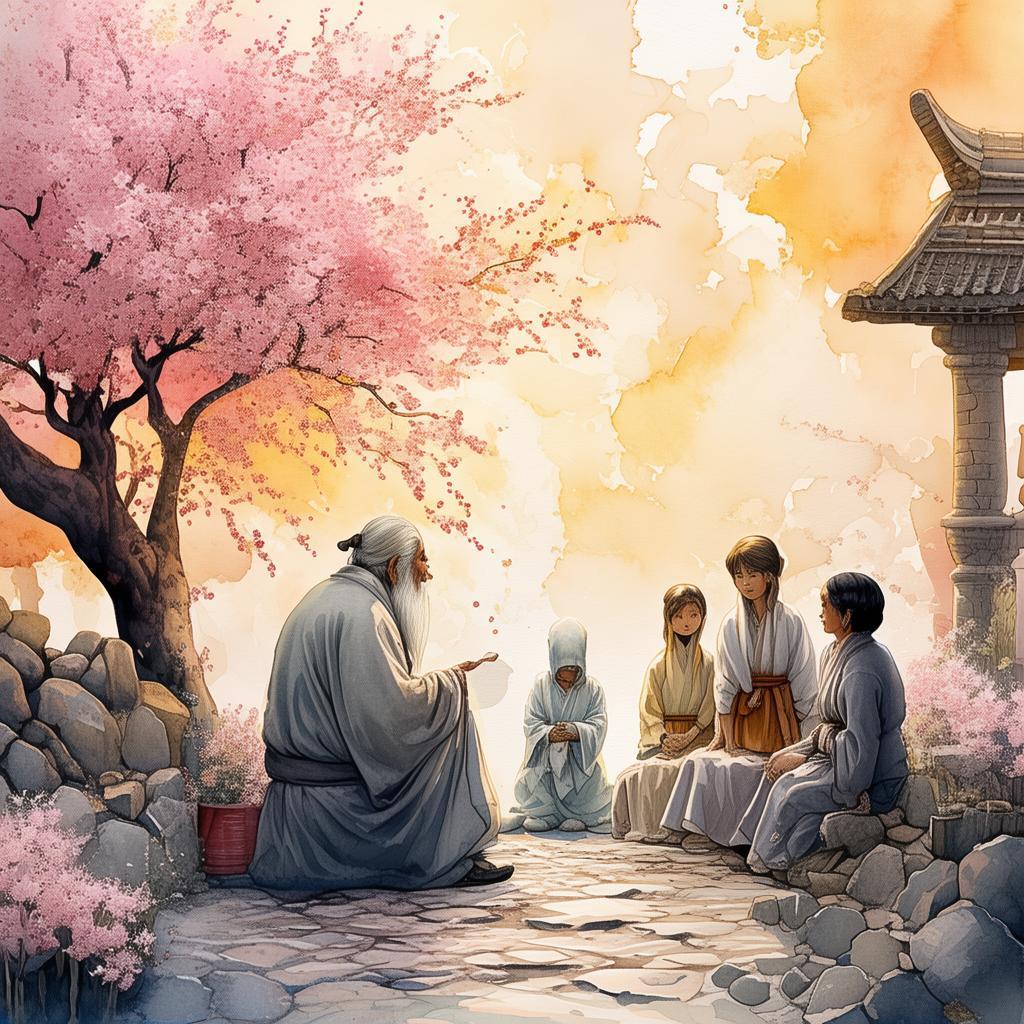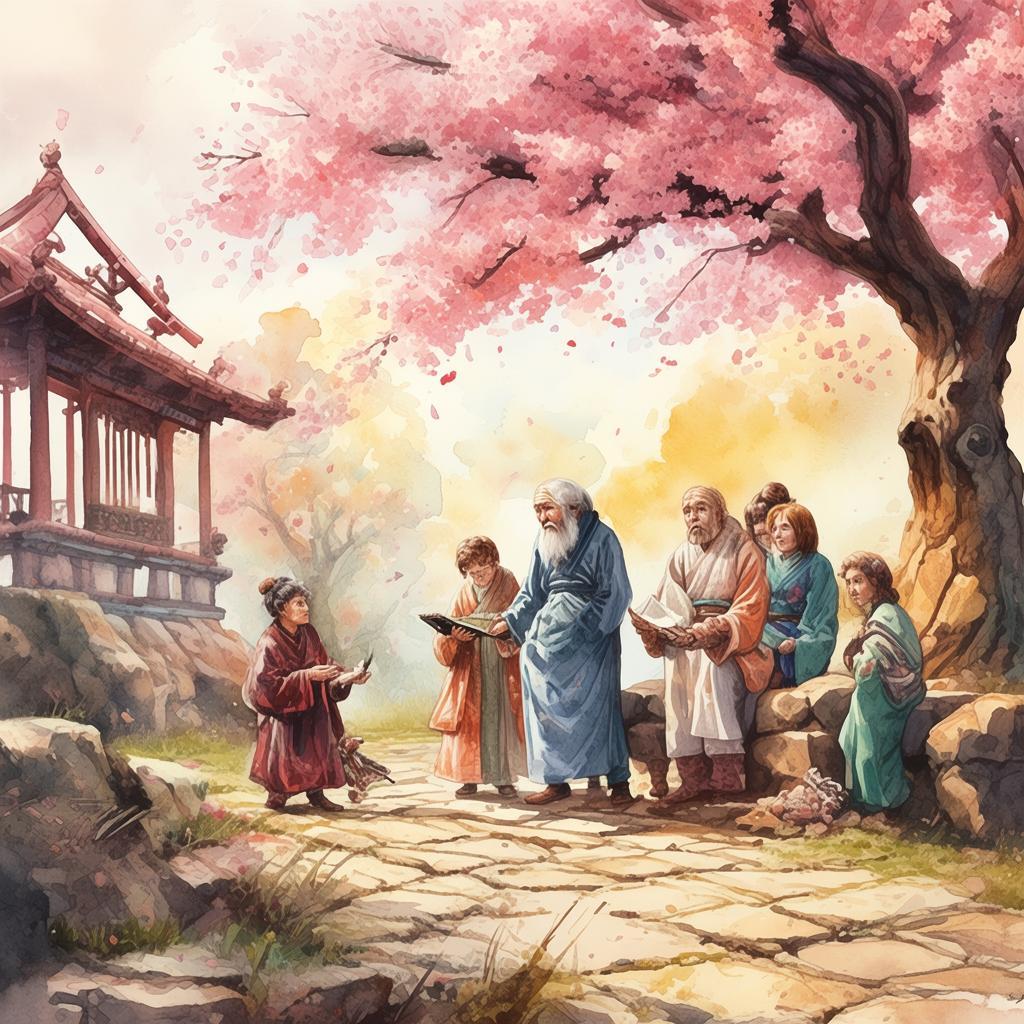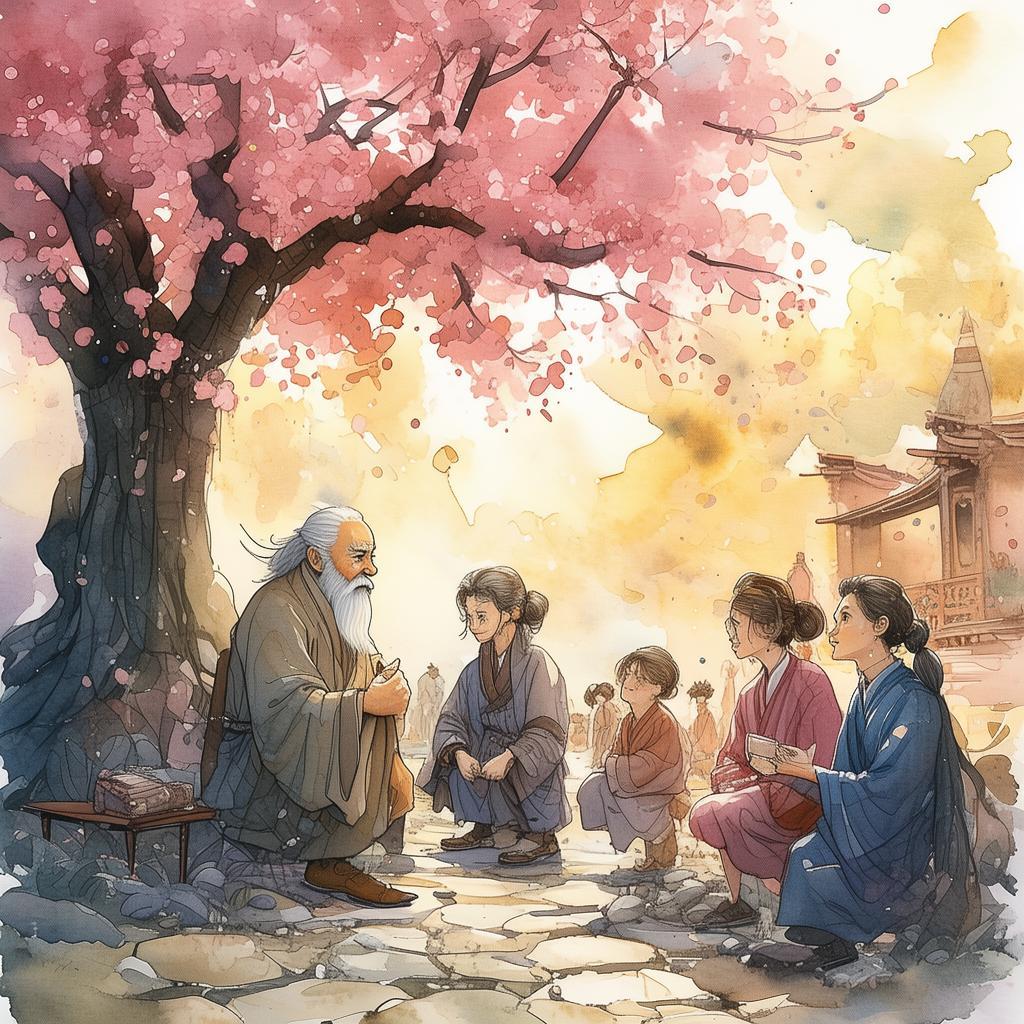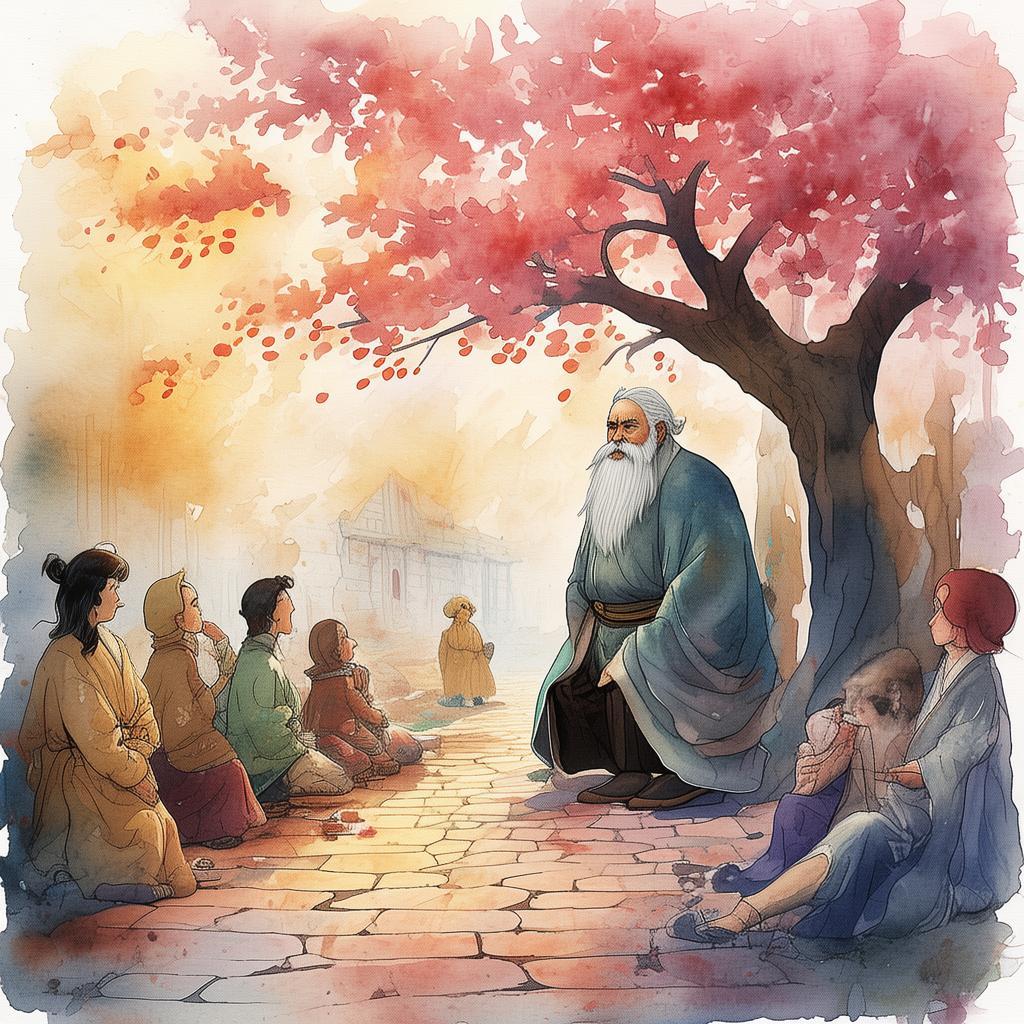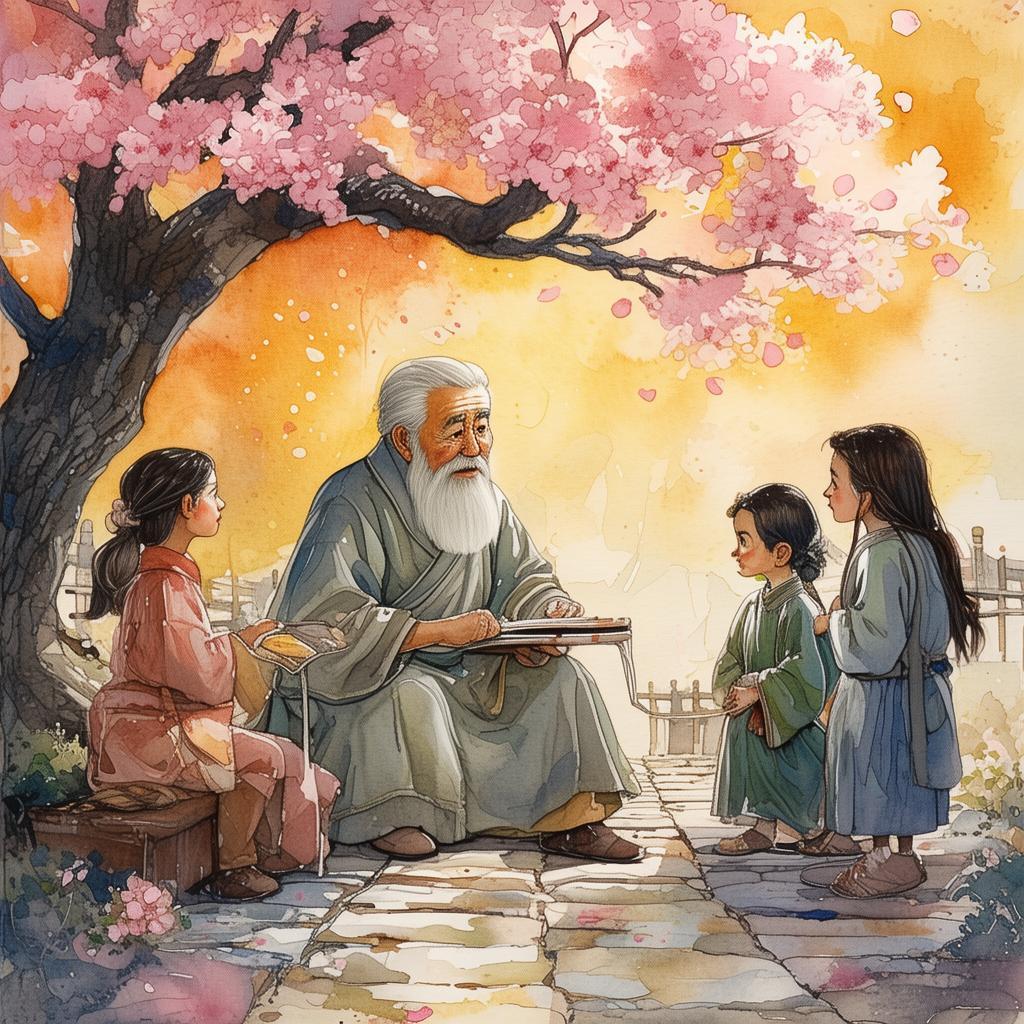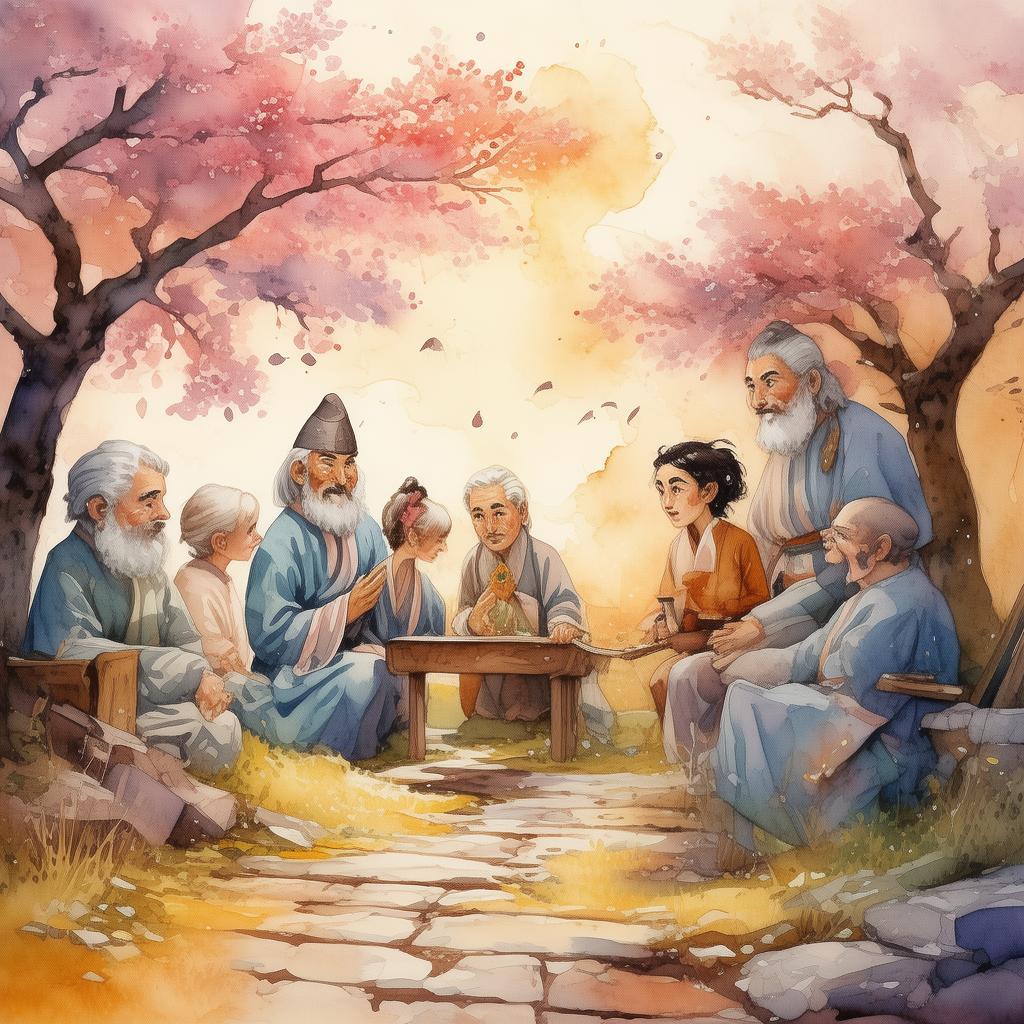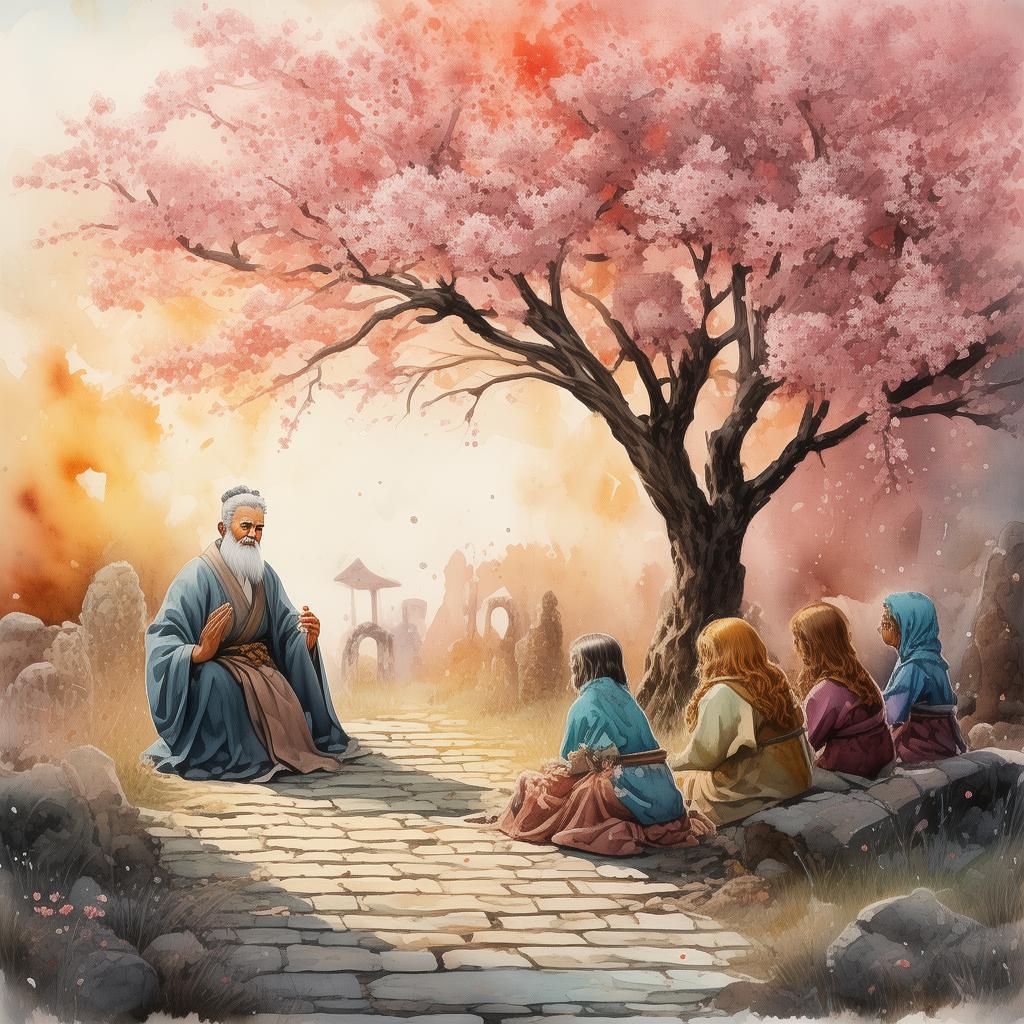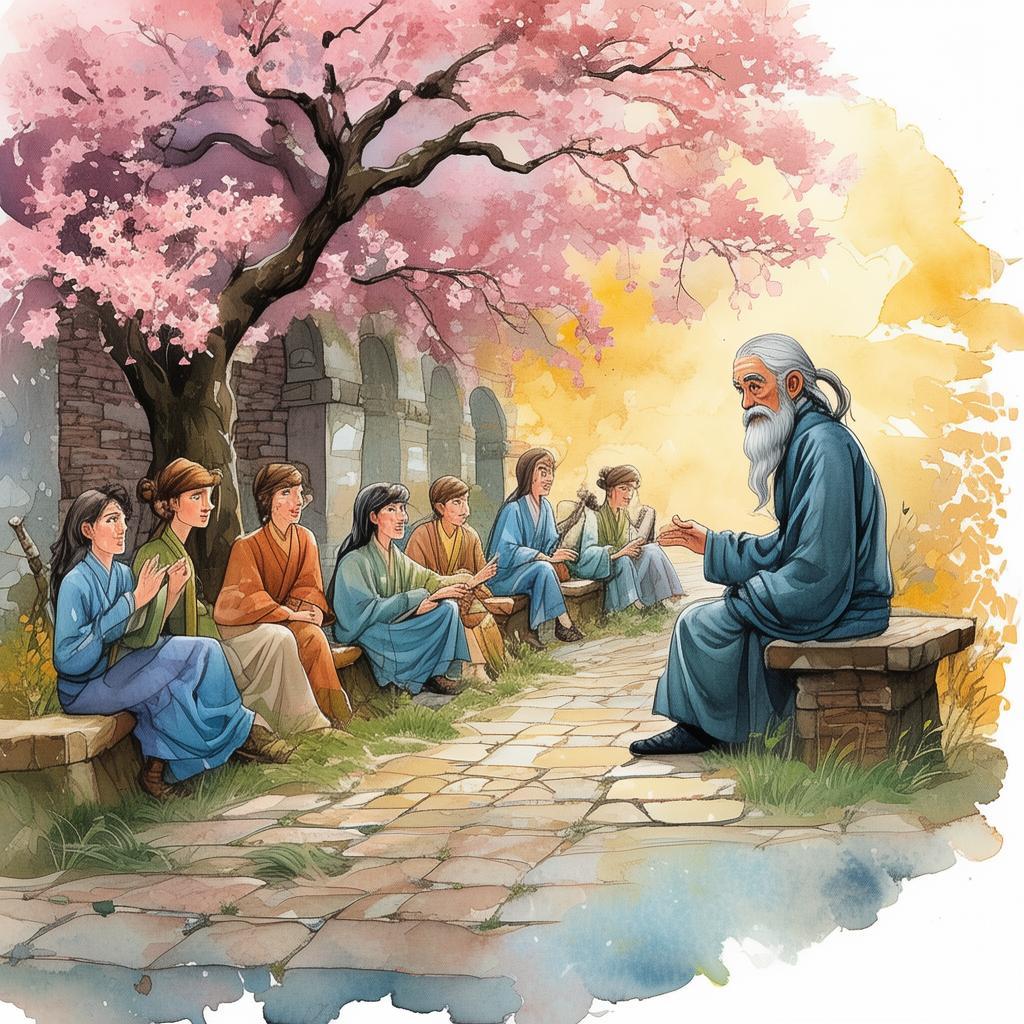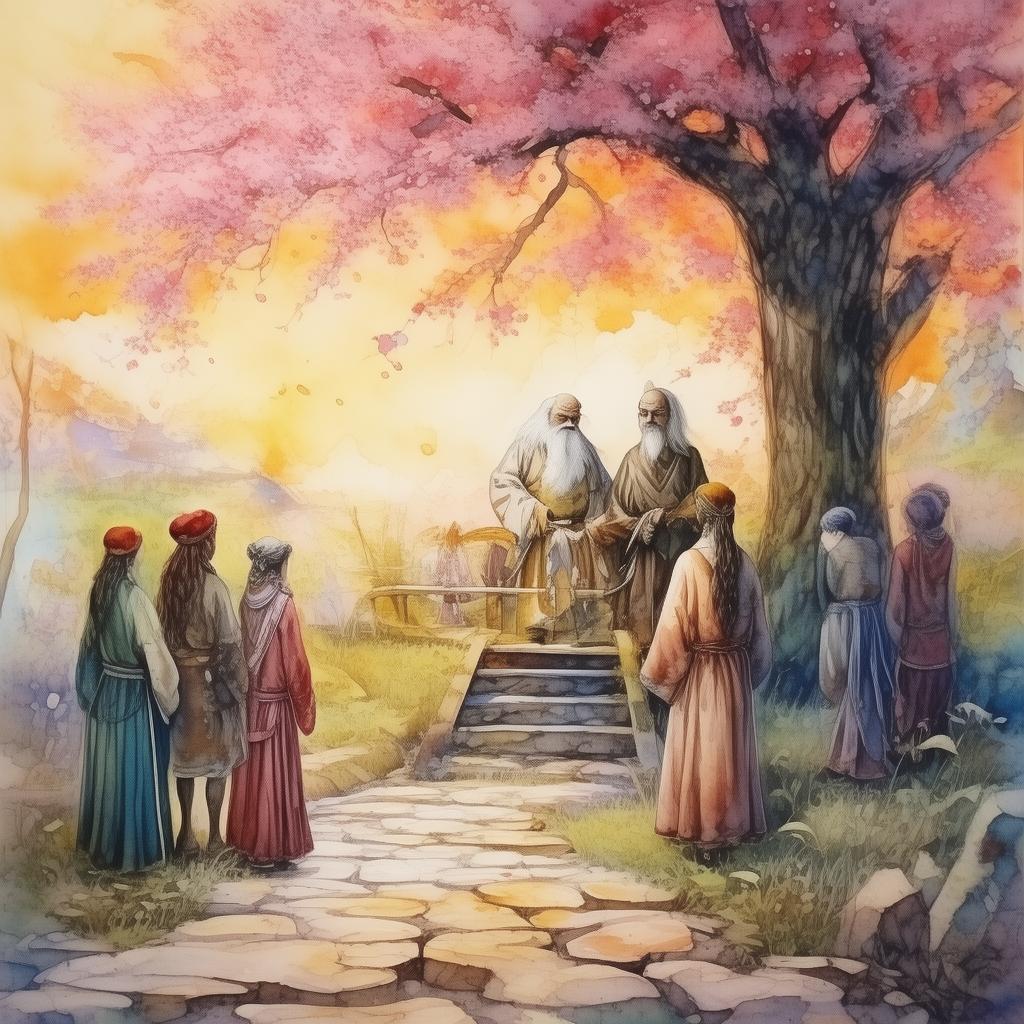Confucius' Journey to the Lost Dynasty
In the tranquil town of Qufu, a revered sage named Confucius was known for his profound wisdom and moral teachings. He was a sage of ancient China, known for his philosophy that emphasized the importance of proper conduct and social harmony. It was during a particularly serene evening that Confucius was approached by a mysterious figure dressed in ancient garb.
"Confucius," the figure began, "I come from a time when your teachings were long forgotten. There exists a lost dynasty, where your wisdom is needed more than ever. Will you journey with me?"
Confucius, intrigued by the offer, agreed. He was not one to turn down an opportunity to share his knowledge. With a mystical scroll in hand, he was whisked away to the past, to a dynasty long since vanished.
The lost dynasty was a land of grandeur and decay, where the old traditions clung to life like ivy on ancient stone walls. The people, though they wore the robes of ancient China, spoke in a dialect that was alien to Confucius. He marveled at the sight of palanquins, lanterns, and the intricate calligraphy that adorned every building.
As Confucius walked the streets, he learned of the dynasty's troubles. The ruler, a young and ambitious prince, was surrounded by corrupt officials and cunning advisors. The people were weary, and the land was suffering under a heavy tax burden.
One day, as Confucius sat in the court, the prince addressed him directly. "Sage Confucius, I have heard of your teachings. Can you help me rule this land with justice and wisdom?"
Confucius pondered the prince's words. He knew that the prince was young and eager, but he also knew the dangers of political ambition. He decided to share a parable with the prince, one that would test his loyalty and character.
"The story of the tree," Confucius began. "There was a tree that grew tall and strong. Its leaves were green and its branches were long. But when a storm came, it fell. Why? Because it was proud of its strength and ignored the roots that supported it."
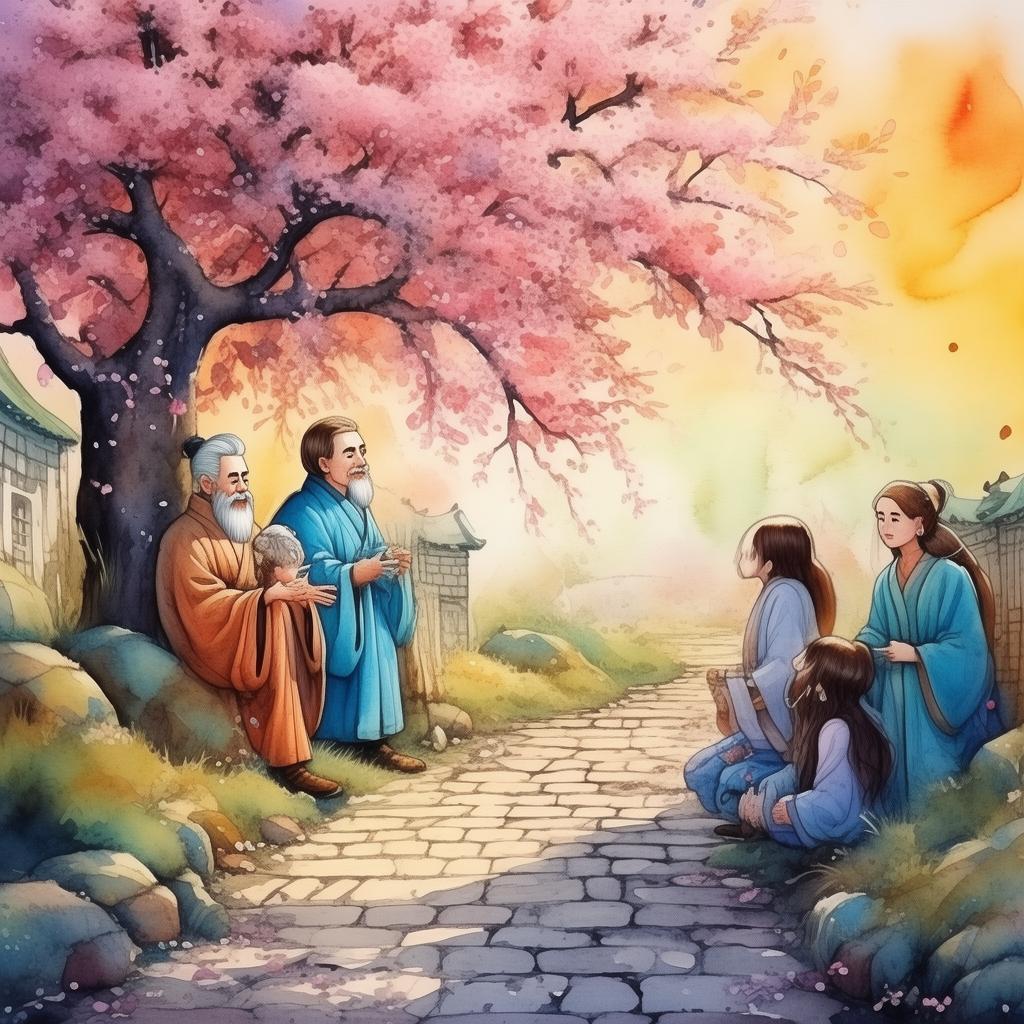
The prince listened intently, his eyes wide with understanding. "You speak of loyalty to the people and to one's roots," he said. "But how can I show this loyalty?"
Confucius replied, "By listening to the people, by seeking counsel, and by not succumbing to the corrupting influence of power."
The prince, moved by Confucius' words, decided to take a different path. He listened to the people, and his rule became one of peace and prosperity. The corrupt officials were replaced, and the tax burden was lifted. The lost dynasty flourished once more.
But Confucius knew that his journey was far from over. The mystical scroll in his hand was a key to the past, and he realized that he had to make a choice. Should he return to his own time, or should he stay and help the people he had come to care for?
He sought counsel from an ancient sage who had accompanied him on this journey. "Sage," the old man said, "your journey is not complete until you have taught the prince the true essence of your wisdom."
With this in mind, Confucius decided to stay. He continued to advise the prince and to teach the people, using his knowledge of ancient traditions to rebuild the dynasty.
Years passed, and the lost dynasty was reborn. Confucius, though an ancient sage, was respected as a wise counselor. He saw his teachings come to life, and he knew that his journey had been worth it.
Finally, the mystical scroll shimmered once more, and Confucius knew it was time to return to his own time. With a heavy heart, he bid farewell to the prince and the people he had come to love.
Back in Qufu, Confucius returned to his teachings, his heart filled with the knowledge that he had made a difference in a lost dynasty. His journey had been one of self-discovery, as much as it had been of service to others. He had learned the true meaning of loyalty and wisdom, and he carried this lesson with him for the rest of his life.
The story of Confucius' journey to the lost dynasty spread far and wide, and it became a parable of loyalty and the enduring power of ancient wisdom. It was a tale that would be told for generations, reminding all who heard it of the importance of staying true to one's roots and the people one serves.
✨ Original Statement ✨
All articles published on this website (including but not limited to text, images, videos, and other content) are original or authorized for reposting and are protected by relevant laws. Without the explicit written permission of this website, no individual or organization may copy, modify, repost, or use the content for commercial purposes.
If you need to quote or cooperate, please contact this site for authorization. We reserve the right to pursue legal responsibility for any unauthorized use.
Hereby declared.
